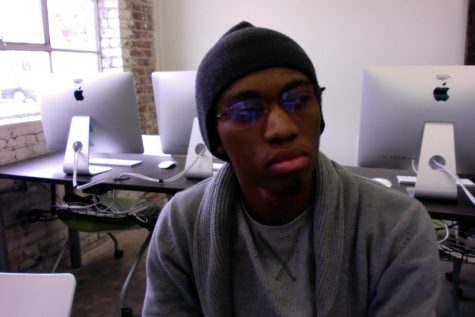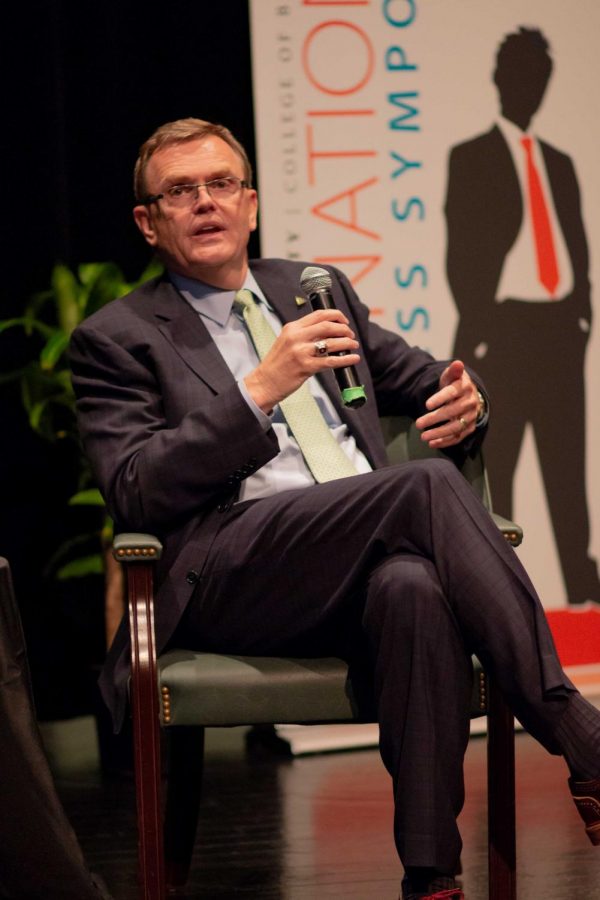Five Mindsets That Will Boost Your College Experience
With the upcoming events of Spring 2020, like the International Business Symposium and Young Professional Conference, getting into a convenient mindset to make the most out of these opportunities is crucial. These five concepts will help you do just that and more:
Realism
Let’s be real: if you don’t wake at least 30 minutes before the time it takes you to get to 8 AM class, you’re likely to be late. Realism is the interest in or focus on the real as opposed to speculative. Common sentences that emphasize this concept are “So far so good” or “Just go with the flow.”
Realism can keep you grounded as a student. It is manifested by your level of consciousness about your homework, work ethic, daily habits and human needs. Realism doesn’t underrate idealism rather it can strengthen it by giving it more solid references to from which to expand and experiment.
Self-Discipline
Exploration is a big part of the human condition, especially when you’re young. It involves venturing into the world open to whatever comes your way. Exploration suggests a willingness and an ability to adapt. Self-discipline means the voluntary adjustment, correction and improvement of the self when working towards a goal even when facing emotional feedbacks. It allows you to convert potential into reality by using the power of will and action.
Self-discipline typically involves managing your time by creating plans, schedules and a routine that fits your goal. It can give consistency and improve efficiency and effectiveness. For instance, it takes self-discipline to be consistently on time for events or to personally engage in physical exercises on a weekly basis.
Growth Mindset
Young students should avoid being stagnant when it comes to their personal effort to achieve and make an impact in life. A growth mindset is a mentality or framework that allows you to use what happens in your life in efficient and productive ways. It helps being more proactive rather than reactive.
Most life coaches recommend seeing growth as a process rather than an end, so growth is constantly in flux. Delta State student Zaida Laventure put it simply “I just learn from it” when referring to criticism. She thinks that it is not as bad that you might think because you can use it for further growth.
There is the concept of self-talk that Dr. Shad Helmstetter refers to in his book “What To Say When You Talk To Yourself”. He firmly believes that what we say to ourselves impact our own programming which ultimately impacts our actions and behaviors. So, don’t drop a class just because of your laziness or fear of failing; ask teachers and students for help, assistance and references.
Interactionism
Interactionism in philosophy refers to a theoretical perspective in which the mind and the body are believed to affect each other. In Sociology, it is a focus on individual or group interaction as a basis for society.
Basically, the impact that you might want to have later on doesn’t have to wait. Live in the moment and consider the effect your actions have on your own body as well as your family, friends, neighbors, community and so on.
This contributes to the development of your character and limit the rampaging effect of loneliness, isolation and self-doubt. Humans are social beings because we live in population and globalization is still a growing process.
Balance
We all have limited physical and mental energy, as well as the same availability of hours during a day, so it is important to carefully sort out our priorities to stay motivated and stable. Balance is a state of mental, emotional and physical stability. If you don’t consciously try to maintain a good balance in life, you may struggle to keep up with your dreams and your sense of meaning. Eat, exercise and prioritize the thoughts, feelings, activities and people that resonate with your improved self; then, set boundaries into these interactions. and interact with others.
Overall, these concepts are not the recipe for happiness, but they are great tools to use to create a better version of yourself. College is not a race to succeed; it takes knowledge, wisdom and mistakes to define what success means from one individual to another.
For more understanding of yourself, take the Big Five Personality Test here: https://www.truity.com/test/big-five-personality-test.

Originally from Haiti, senior Brownley Francois Eloi came to Delta State University's for its financial program. He plans to pursue a career in financial...



